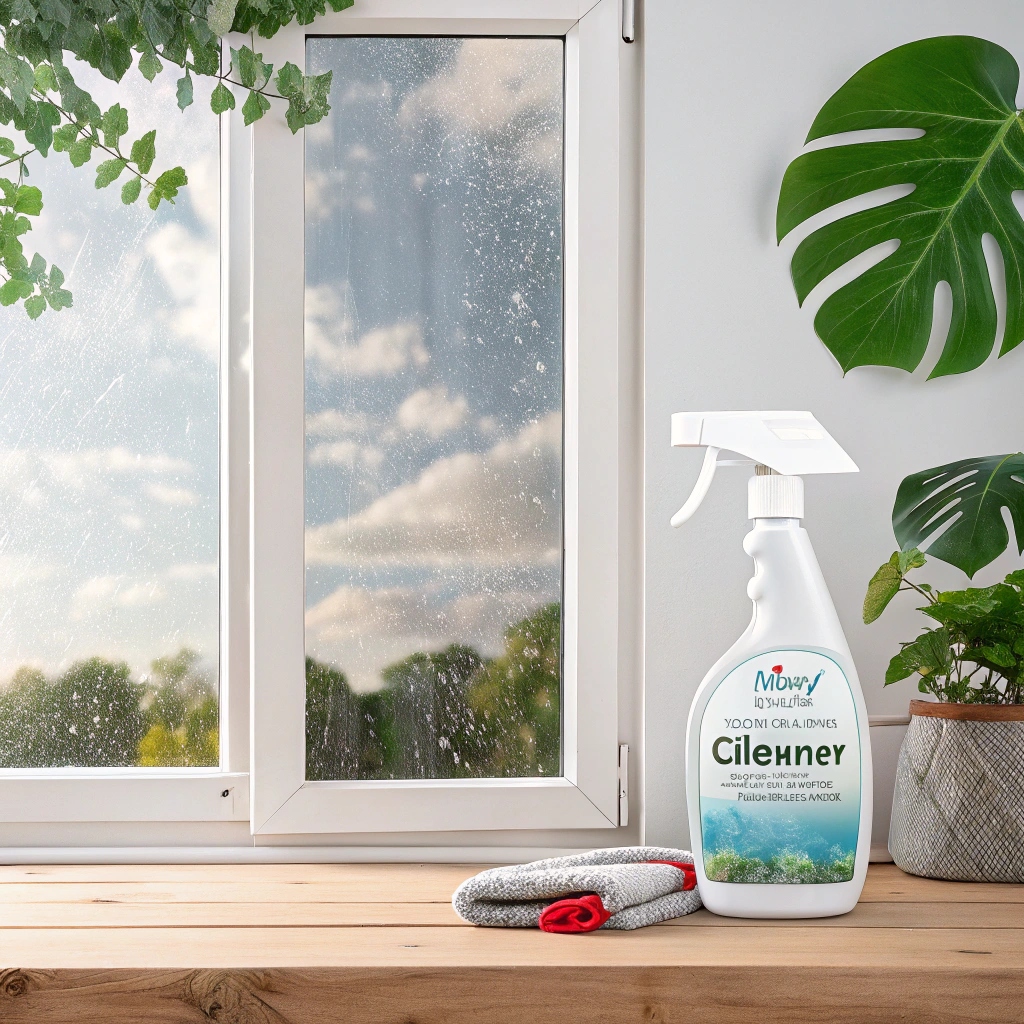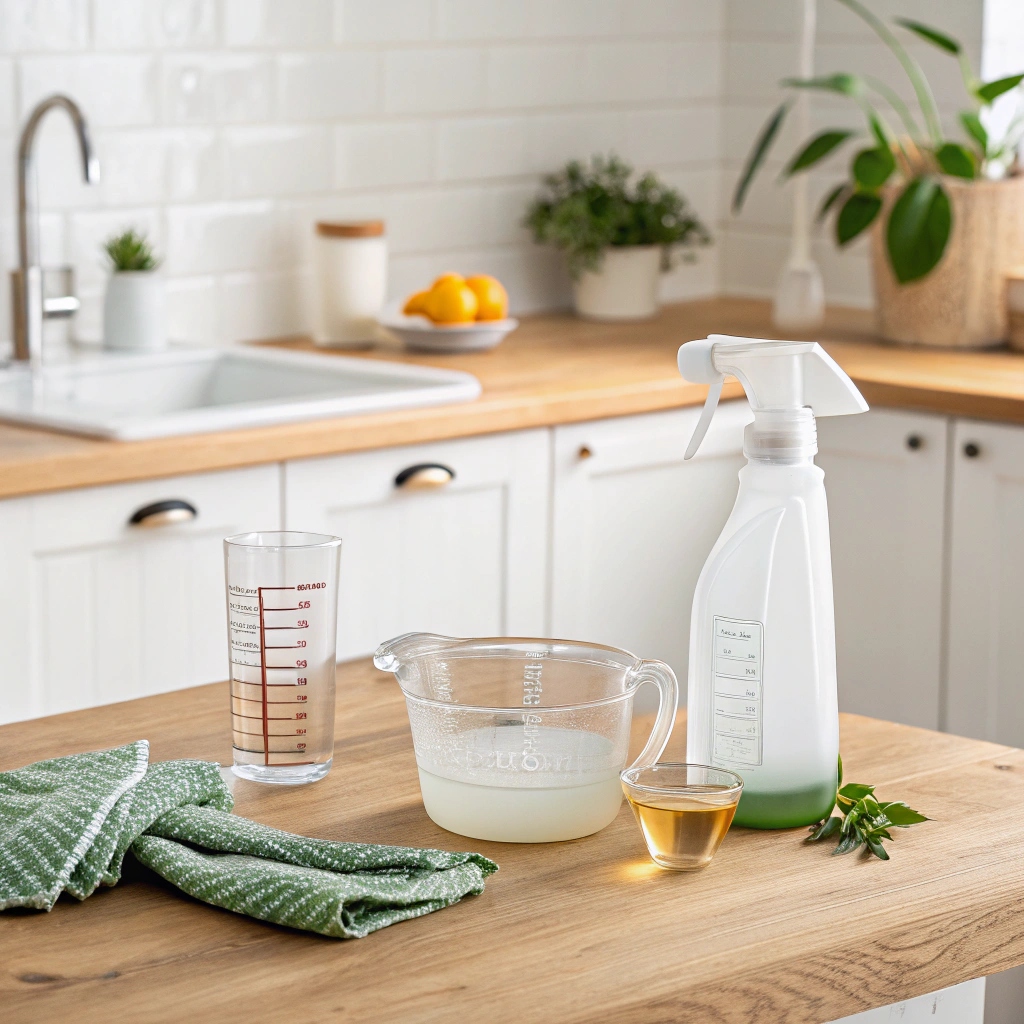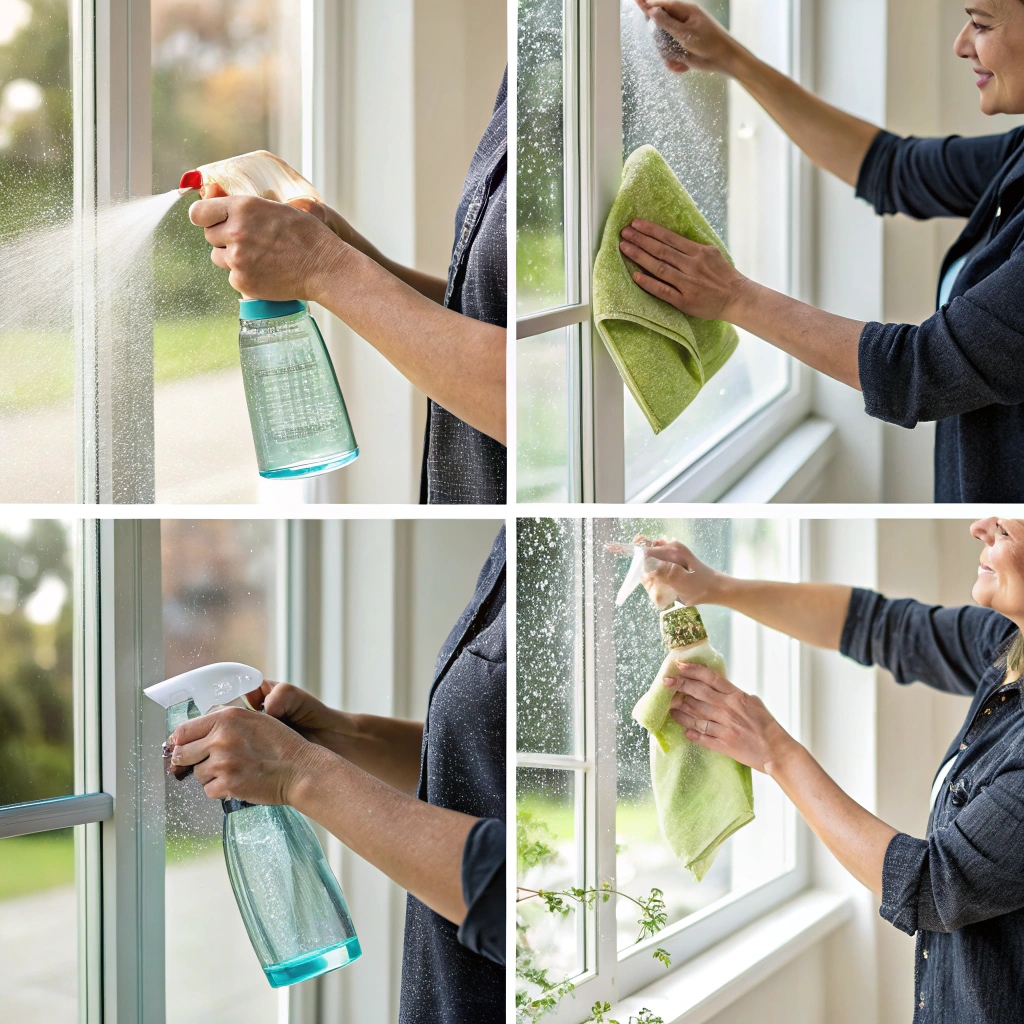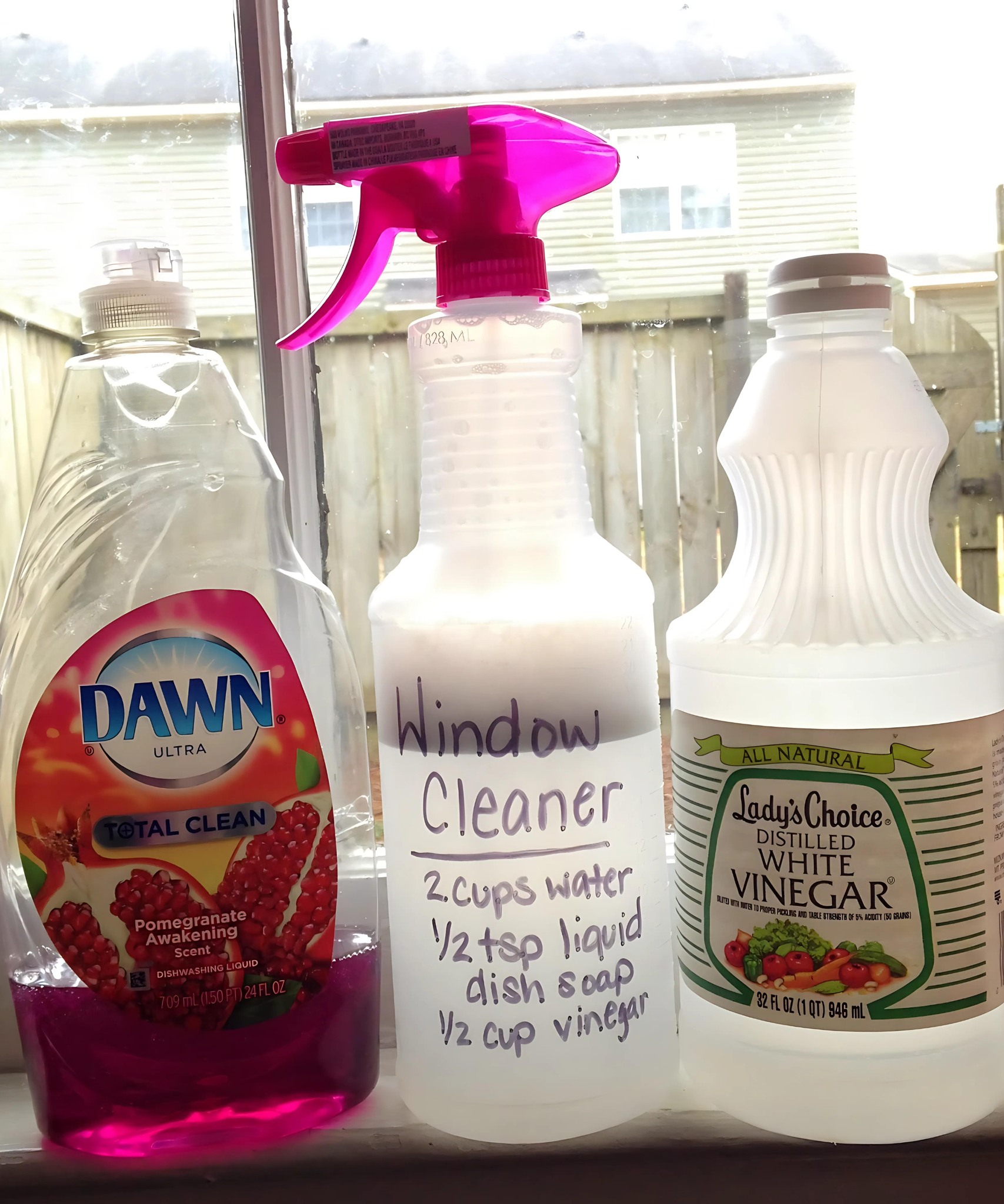Homemade Window Cleaner
Introduction
A clean window can instantly brighten any space, making your home feel fresh and inviting. However, many commercial glass cleaners contain harsh chemicals that can leave behind strong odors and streaky residues. If you’re looking for a safer, more cost-effective alternative, making your own homemade window cleaner is the perfect solution.
This DIY cleaner uses natural, everyday ingredients to cut through dirt, dust, and grime while leaving your windows streak-free. Whether you prefer a vinegar-based solution, an alcohol-infused mix, or a baking soda-powered cleaner, there’s a recipe to match your needs. Best of all, these homemade cleaners are eco-friendly, budget-friendly, and just as effective as store-bought options.
In this guide, you’ll learn how to make a streak-free homemade window cleaner using simple ingredients. You’ll also discover key benefits, pro tips, and the best ways to use your cleaner for crystal-clear windows every time.
Key Benefits

1. Safe and Non-Toxic
Many store-bought window cleaners contain ammonia, artificial fragrances, and other chemicals that may cause skin irritation or breathing issues. A homemade window cleaner made with natural ingredients eliminates these risks, making it safer for your family and pets.
2. Cost-Effective
A homemade window cleaner costs a fraction of commercial cleaners. Most ingredients—such as vinegar, alcohol, and baking soda—are already in your kitchen, making this a budget-friendly alternative.
3. Eco-Friendly
Since homemade cleaners rely on natural ingredients, they reduce exposure to harmful chemicals and minimize plastic waste from store-bought spray bottles. You can reuse and refill your own spray bottle, further reducing your environmental impact.
4. Streak-Free Cleaning
Many commercial glass cleaners leave streaks, especially when not wiped correctly. A well-balanced homemade cleaner ensures crystal-clear windows without any residue.
5. Customizable Recipes
Different surfaces and weather conditions require different cleaning solutions. Whether you need a vinegar-based, alcohol-infused, or ammonia-powered cleaner, you can tailor your DIY solution to your specific needs.
Ingredients

Basic Vinegar-Based Window Cleaner
- 1 cup white vinegar
- 1 cup distilled water
- 1 teaspoon dish soap (optional)
- Spray bottle
Alcohol-Based Window Cleaner (Fast Drying)
- 1 cup rubbing alcohol (isopropyl alcohol)
- 1 cup distilled water
- 1 tablespoon white vinegar
- Spray bottle
Baking Soda Window Cleaner (For Tough Stains)
- 1 tablespoon baking soda
- 2 cups warm water
- 1 tablespoon white vinegar
- Spray bottle
Ammonia-Based Window Cleaner (For Extra Shine)
- ½ cup ammonia
- 1 quart warm water
- 1 teaspoon dish soap
- Spray bottle
Instructions

Step 1: Choose Your Recipe
Select the best cleaning solution based on your window type and dirt level. Vinegar works well for general cleaning, alcohol speeds up drying, baking soda tackles grime, and ammonia adds extra shine.
Step 2: Mix Ingredients
Pour the ingredients into a spray bottle. Shake well to combine. If using baking soda, stir it into warm water before transferring it to the bottle.
Step 3: Spray Generously
Lightly mist the solution onto your windows. Avoid over-saturating, as excessive liquid can drip and cause streaks.
Step 4: Wipe with a Microfiber Cloth
Use a lint-free microfiber cloth, newspaper, or squeegee to wipe the glass in a circular motion. Work from top to bottom for the best results.
Step 5: Buff for Extra Clarity
For a flawless finish, buff the glass with a dry microfiber cloth or crumpled newspaper.
Pro Tips and Variations
1. Avoid Cleaning in Direct Sunlight
The sun can cause the solution to dry too quickly, leading to streaks. Clean windows on a cloudy day or during cooler hours.
2. Use Distilled Water
Tap water contains minerals that can leave behind residue. Distilled water ensures a streak-free finish.
3. Add Essential Oils for a Fresh Scent
If you dislike the smell of vinegar, add a few drops of lemon, lavender, or peppermint essential oil.
4. Test on Small Areas First
Before using ammonia or alcohol-based cleaners, test on a small, hidden spot to avoid damage.
5. Double-Clean for Extra Dirty Windows
For extremely dirty windows, wash with soapy water first, then follow up with your DIY cleaner.
Conclusion
Making your own homemade window cleaner is simple, affordable, and highly effective. Whether you prefer vinegar, alcohol, baking soda, or ammonia, there’s a recipe that suits your needs. These natural solutions not only clean windows but also help protect your home from unnecessary chemicals. With the right technique and ingredients, you’ll achieve streak-free, crystal-clear windows effortlessly.
FAQs
1. What is the best homemade window cleaner?
A vinegar-based solution (1 cup vinegar, 1 cup distilled water) is the most popular and effective DIY window cleaner. It cuts through grime and prevents streaks.
2. How do you make streak-free glass cleaner?
To prevent streaks, use distilled water, wipe with a microfiber cloth, and avoid cleaning in direct sunlight. Adding rubbing alcohol can help speed up drying.
3. What is the best natural cleaner for windows?
A mixture of white vinegar and water is the best natural cleaner. Adding baking soda can help remove stubborn stains, while essential oils enhance the scent.
4. Is vinegar and water the best window cleaner?
Yes, vinegar and water are among the most effective, natural, and eco-friendly ways to clean windows. Vinegar dissolves grime and grease, leaving glass streak-free.

